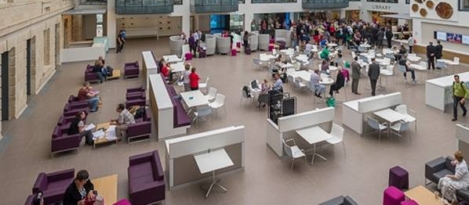September 4, 2015
UK surveyors remain slow to adopt BIM despite awareness of risks 0
 According to a new survey from the Royal Institution of Chartered Surveyors, around a half (49 percent) of surveyors do not use Building Information Modelling (BIM) on a regular basis, despite the fact that a significant majority (74 percent) have considered the business case and a similar proportion (73 percent) acknowledge that non-adoption will create significant challenges for the UK construction sector. When asked for the reason for non-adoption. around two thirds (68 percent) feel they lack the information to adopt BIM properly, a third (31 percent) claim there is no need for their own firm and a quarter (26 percent) say they lack the technical skills needed for adoption. This is in spite of that fact that over half of all respondents (55 percent) say that they are currently working with architects that use BIM.
According to a new survey from the Royal Institution of Chartered Surveyors, around a half (49 percent) of surveyors do not use Building Information Modelling (BIM) on a regular basis, despite the fact that a significant majority (74 percent) have considered the business case and a similar proportion (73 percent) acknowledge that non-adoption will create significant challenges for the UK construction sector. When asked for the reason for non-adoption. around two thirds (68 percent) feel they lack the information to adopt BIM properly, a third (31 percent) claim there is no need for their own firm and a quarter (26 percent) say they lack the technical skills needed for adoption. This is in spite of that fact that over half of all respondents (55 percent) say that they are currently working with architects that use BIM.

































September 2, 2015
We need to do more than pay lip service to workplace wellbeing 0
by Ann Clarke • Case studies, Comment, Wellbeing, Workplace design
(more…)